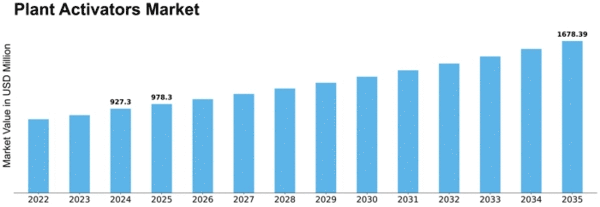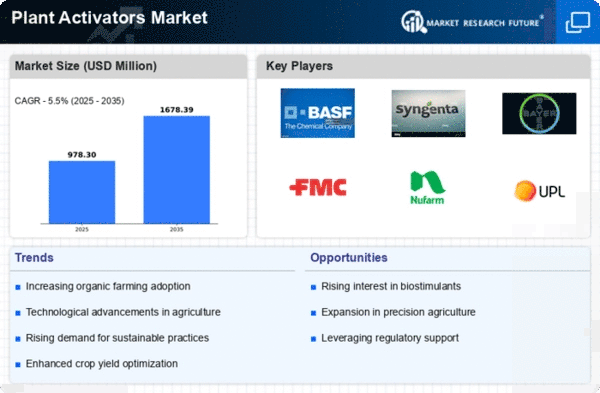Plant Activators Size
Plant Activators Market Growth Projections and Opportunities
The increased emphasis on sustainable agriculture, advances in plant science, and the demand for alternate crop protection measures are changing plant activator market dynamics. Plant activators for integrated pest control (IPM) are in demand. Farmers are using plant activators to boost plant defenses as they become more cognizant of the environmental impact of chemical pesticides. These substances, either natural or synthetic to imitate plant signaling molecules, boost the plant's immune system, making it more resistant to pests and illnesses.
Organic and sustainable agricultural approaches drive plant activator market dynamics. Farmers are looking for alternatives to synthetic pesticides as customers choose organic food and sustainable farming. Plant activators support regenerative agriculture by protecting crops sustainably. This movement is motivated by environmental concerns and the aim to develop healthier, more robust crops for conscientious customers.
Plant activator development and use are affected by plant science and molecular biology advances. Plant signaling pathways are being better understood, allowing researchers to build activators that exactly trigger the desired response. This scientific research has led to increasingly effective and tailored plant activator formulations that increase plant defenses against stresses.
Climate change affects plant activator markets worldwide. Temperature, humidity, and new pests and illnesses impact agricultural output worldwide. Plant activators help plants overcome these problems by offering a proactive and adaptive defensive system. Climate-resilient agriculture uses plant activators to promote systemic resistance, which helps crops tolerate unpredictable weather.
The regulatory environment also affects market dynamics. As knowledge of conventional pesticides' environmental and health concerns grows, regulatory organizations are reviewing and restricting chemical input approvals. This has allowed plant activators, which are safer and greener, to become viable alternatives. Plant activator producers must traverse rigorous approval processes and present strong scientific proof of their efficacy and safety.
Globalization and agriculture's interconnectedness affect plant activator markets. Crop protection is becoming increasingly uniform and global as farmers worldwide use similar methods to solve problems. International interchange of information, technology, and best practices has hastened the acceptance of plant activators as a sustainable and universal agriculture solution.
In conclusion, plant activators are shifting towards sustainable and eco-friendly crop protection due to plant science advances, customer preferences, and climate change. As farmers use regenerative agriculture and alternatives to pesticides, plant activators are improving plant immunity and resilience. Research, technology innovation, and environmentally aware farming are changing the plant activators industry, providing a sustainable and resilient agriculture.



















Leave a Comment